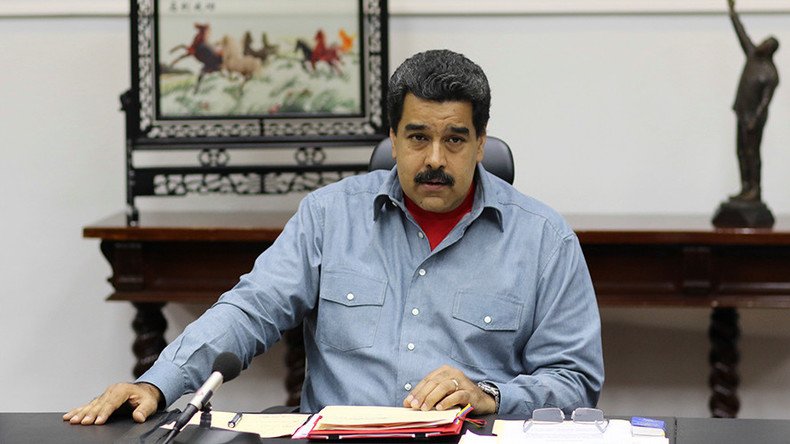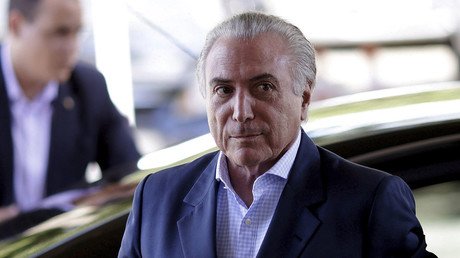60 more days of emergency in Venezuela as president fears US plots

Fearing a possible coup in Venezuela, President Nicolas Maduro has extended a state of emergency in the country for another 60 days, citing an "onslaught of the oligarchy" in collusion with the US.
.@NicolasMaduro firmó Decreto de Estado de Excepción y Emergencia Económica para enfrentar amenazas contra el país pic.twitter.com/NxiJWp0zYJ
— Prensa Presidencial (@PresidencialVen) 14 мая 2016 г.
"Washington is activating measures at the request of Venezuela's fascist right, who are emboldened by the coup in Brazil," Maduro said during a Friday night broadcast on state television.
Maduro said he fears possible intervention by foreign armies and explained that the new emergency decree includes the ability to face these external threats.
An economic state of emergency has been in force in the oil-rich country since January, including rationing of food and other goods. The country is facing economic ruin largely because of the crash in oil prices. To reverse the downturn, Maduro said he had issued some 21 decrees within the framework of the Constitution, since the measures were introduced "to protect the people and socio-economic stability of the country."
Addressing the nation, the president warned that the "virus of the coup" could return to Latin America, after Brazilian President Dilma Rousseff was suspended from office earlier this week during impeachment proceedings.
"We have already seen the image ...[of] the oligarchy signing and removing power to the people," the Venezuelan president said, claiming the Brazilian parliament ousted Rousseff in "a totally unfair play," dubbing the now former president "a woman of great honesty, great courage, who knew how to confront dictatorship and torture."
He noted that since the United States remains in "a complicit silence” regarding the impeachment in Brazil, Washington's “ultimate goal” is to stop the BRICS group (Brazil, Russia, India, China and South Africa) from threatening US global dominance.
"These are issues vetted by the great world power ... attempting to impose a world government," he said.
Before Maduro extended the state of emergency, two US intelligence officials, briefing a small group of reporters in Washington, said the Venezuelan president will not survive office to run for re-election, as a “plausible” scenario would see Maduro fall from grace at the hands of his own politicians.
“You can hear the ice cracking. You know there’s a crisis coming,” one official said. “Our pressure on this isn’t going to resolve this issue.”
“This is really not the case that the US is rooting for any outcome other than there not be an economic meltdown or social violence,” another official said. “There are reasons for concern that over the summer as Venezuela gives importance to payments on debt over imports that these events could spiral.”
Besides reports of widespread looting, the deteriorating economic situation has led to a number of protests in the country. On Wednesday, Venezuelan security forces used tear gas and pepper spray against an opposition march. The protesters were trying to reach the headquarters of the electoral board after submitting a petition signed by almost two million people calling for a referendum to oust Maduro.
Large-scale demonstrations are planned for Saturday in Caracas by opponents of the government and by socialists amid fears they could lead to violence.













